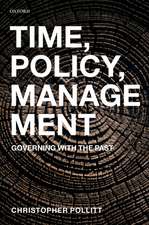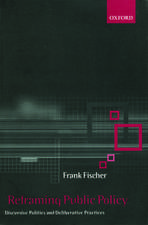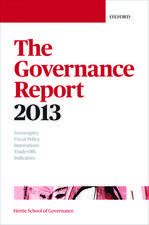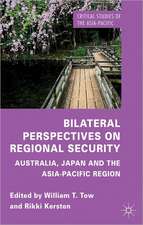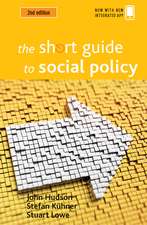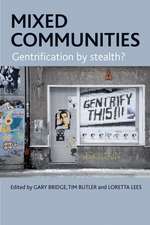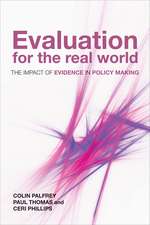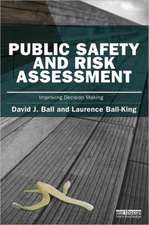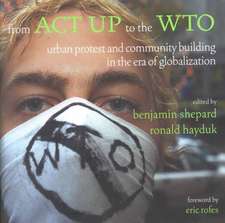Field Experiments in Political Science and Public Policy: Practical Lessons in Design and Delivery: Routledge Studies in Experimental Political Science
Autor Peter Johnen Limba Engleză Hardback – 24 ian 2017
Social scientists and evaluators have rediscovered how to design and analyze field experiments, but they have paid much less attention to the challenges of organizing and managing them. Field experiments pose unique challenges and opportunities for the researcher and evaluator which come from working in the field. The research experience can be challenging and at times hard to predict. This book aims to help researchers and evaluators plan and manage their field experiments so they can avoid common pitfalls. It is also intended to open up discussion about the context and backdrop to trials so that these practical aspects of field experiments are better understood.
The book sets out ten steps researchers can use to plan their field experiments, then nine threats to watch out for when they implement them. There are cases studies of voting and political participation, elites, welfare and employment, nudging citizens, and developing countries.
| Toate formatele și edițiile | Preț | Express |
|---|---|---|
| Paperback (1) | 340.13 lei 3-5 săpt. | +17.48 lei 10-14 zile |
| Taylor & Francis – 9 ian 2017 | 340.13 lei 3-5 săpt. | +17.48 lei 10-14 zile |
| Hardback (1) | 1109.66 lei 6-8 săpt. | |
| Taylor & Francis – 24 ian 2017 | 1109.66 lei 6-8 săpt. |
Preț: 1109.66 lei
Preț vechi: 1353.25 lei
-18% Nou
Puncte Express: 1664
Preț estimativ în valută:
212.33€ • 222.29$ • 175.69£
212.33€ • 222.29$ • 175.69£
Carte tipărită la comandă
Livrare economică 05-19 aprilie
Preluare comenzi: 021 569.72.76
Specificații
ISBN-13: 9781138776821
ISBN-10: 1138776823
Pagini: 222
Dimensiuni: 152 x 229 mm
Greutate: 0.47 kg
Ediția:1
Editura: Taylor & Francis
Colecția Routledge
Seria Routledge Studies in Experimental Political Science
Locul publicării:Oxford, United Kingdom
ISBN-10: 1138776823
Pagini: 222
Dimensiuni: 152 x 229 mm
Greutate: 0.47 kg
Ediția:1
Editura: Taylor & Francis
Colecția Routledge
Seria Routledge Studies in Experimental Political Science
Locul publicării:Oxford, United Kingdom
Public țintă
PostgraduateCuprins
Chapter One: Experimentation in the Field: Opportunities and Constraints
Chapter Two: Essential Steps for the Design of Field Experiments
Chapter Three: Implementing Field Experiments
Chapter Four: A Brief History of Field Experimentation
Chapter Five: Experiments on Voting and Political Participation
Chapter Six: Experiments on Elites
Chapter Seven: Experiments in Welfare and Employment
Chapter Eight: Nudging Citizens
Chapter Nine: Field Experiments in Developing Countries
Chapter Ten: Conclusion
Chapter Two: Essential Steps for the Design of Field Experiments
Chapter Three: Implementing Field Experiments
Chapter Four: A Brief History of Field Experimentation
Chapter Five: Experiments on Voting and Political Participation
Chapter Six: Experiments on Elites
Chapter Seven: Experiments in Welfare and Employment
Chapter Eight: Nudging Citizens
Chapter Nine: Field Experiments in Developing Countries
Chapter Ten: Conclusion
Notă biografică
Peter John is Professor of Political Science and Public Policy in the Department of Political Science, University College London. He is an expert in the study of public policy, and has pioneered the use of experiments in the study of civic participation in the UK.
Recenzii
'In this lively and accessible book, Peter John has shared with readers a wealth of practical guidance that comes from years and years of field experimentation in political science and public policy. Every researcher should heed its advice before venturing into the field.' - Donald P. Green, Columbia University, USA
'Experiments are revolutionizing what we think we know about many aspects of politics. This volume contributes nicely to this body of work by extending the focus to critical questions of public policy. This is a timely and important book.' - Costas Panagopoulos, Fordham University, USA
'Experiments are revolutionizing what we think we know about many aspects of politics. This volume contributes nicely to this body of work by extending the focus to critical questions of public policy. This is a timely and important book.' - Costas Panagopoulos, Fordham University, USA
Descriere
Peter John’s latest book is an introduction to experimentation in political science and public policy. It first defines experimentation and offers historical context, and then moves on to review key features of the statistical method, all the while linking experimentation to core ideas in politics and public policy. Yet rather than functioning as just a research methods text, the book instead is an invitation to the intellectual project and research program of experimentation, which has large ramifications for how researchers and students of political science and public policy carry out their work more generally.




